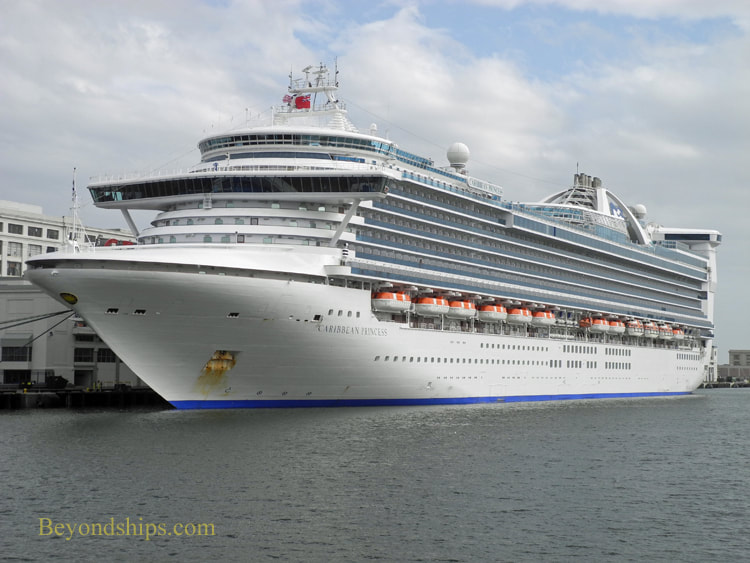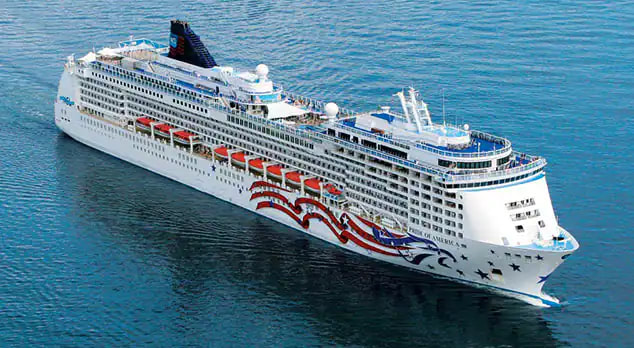What is the Jones Act?
|
During a cruise it is quite common to hear people talk about the “Jones Act.” It usually comes up in conversations about why the ship cannot do an itinerary that only includes ports in the United States.
Actually, it is not the Jones Act that precludes such itineraries. The Jones Act is a multi-faceted law, which among other things places limitations on the itineraries of cargo ships. The law that applies to cruise ships has a much less catchy name - - the Passenger Vessel Services Act of 1886. Enacted by the United States Congress in the 19th century in order to protect American passenger ships from foreign competition, the Passenger Vessel Services Act precludes a foreign-flagged passenger ship from doing itineraries that consist only of ports in the United States. Thus, a ship flying the Stars and Stripes is free to do an all-American itinerary, provided that it meets certain other requirements such as having an American crew and having been built in the United States. A foreign-flagged passenger ship attempting to do will incur a fine based upon the number of passengers aboard. Today, the vast majority of cruise ships are foreign-flagged. While t one time there were many large American-flagged passenger ships, e.g., SS United States, today American-flagged passenger ships are pretty much limited to small ships that specialize in coastal cruises. Norwegian Cruise Line is the only major cruise line with a U.S.-flagged ship. In the early years of this century, Norwegian created a subsidiary, NCL America, and equipped it with three American-flagged ships. However, problems with service on those ships led Norwegian to withdraw and re-name two of the ships from NCL America and re-deploy them into the main NCL fleet with different crews and different names. From time-to-time, foreign-flagged cruise ships are forced to do all-American cruises. Caribbean Princess (above) was forced to divert from a Bermuda cruise because of Hurricane Sandy. As a result, itinerary became New York-Boston-New York.
|
Above: Pride of America, the only large U.S.-flagged cruise ship currently in service. (Photo courtesy of Norwegian Cruise Line).
The chief problem the Passenger Vessel Services Act creates for the cruise industry concerns Hawaiian cruises. From a marketing standpoint, the ideal Hawaiian cruise would start and nd in Honolulu and only visit the other Hawaiian islands. However, because of the law, the foreign-flagged ships of the major cruise lines have to go hundreds of miles out of their way in order to add a foreign port to the itinerary.
The law also makes it difficult for the major lines to do cruises along the East and West Coasts of the Unite States. The itinerary has to be designed so as to include a Canadian or Mexican port or to include an island such as Bermuda. For many years, foreign-flagged ships did cruises-to-nowhere, i.e. cruises in which th ship sailed from a U.S. port, spent a day or two at sea and returned to the same port. During Prohibition such cruises were known as “booze cruises” because the U.S. laws prohibiting alcohol consumption did not apply when the ship was in international waters. More recently, these short cruises were a popular way for people to test whether cruising was for them. However, after more than a century of allowing such cruises, federal regulators decided that they are prohibited under the Passenger Vessel Services Act and they disappeared from the schedules of the major cruise lines. People often ask why some cruise ships that are based in New York City in the summer months sail with no passengers when they redeploy to Florida for the winter. Once again, the culprit is the Passenger Vessel Services Act. If a foreign-flagged ship wants to begin a cruise in one U.S. port and end it in another U.S. port, it must include a “distant” foreign port in between. Under this stricture, a call in Bermuda, the Bahamas or most Caribbean islands do not suffice. As a result, most redeployment cruises involve a call in Aruba, Bonaire, Curaco or another place that qualifies as a distant port. Of course, this makes such cruises much longer than they would be if thr ship took a direct route. From time-to-time, legislation is introduced to repeal the Passenger Vessel Services Act. Such artificial means of limiting competition no longer comport with sound economic thinking. In addition, the law effectively limits American cities from enjoying the economic benefits that could be derived from being ports of call on cruises by large cruise ships. However, as was demonstrated during the recent pandemic, the cruise lines have no political clout and the repeal legislation goes nowhere. |
|
|
|
Cruise ship FAQs - - What is the Jones Act?

